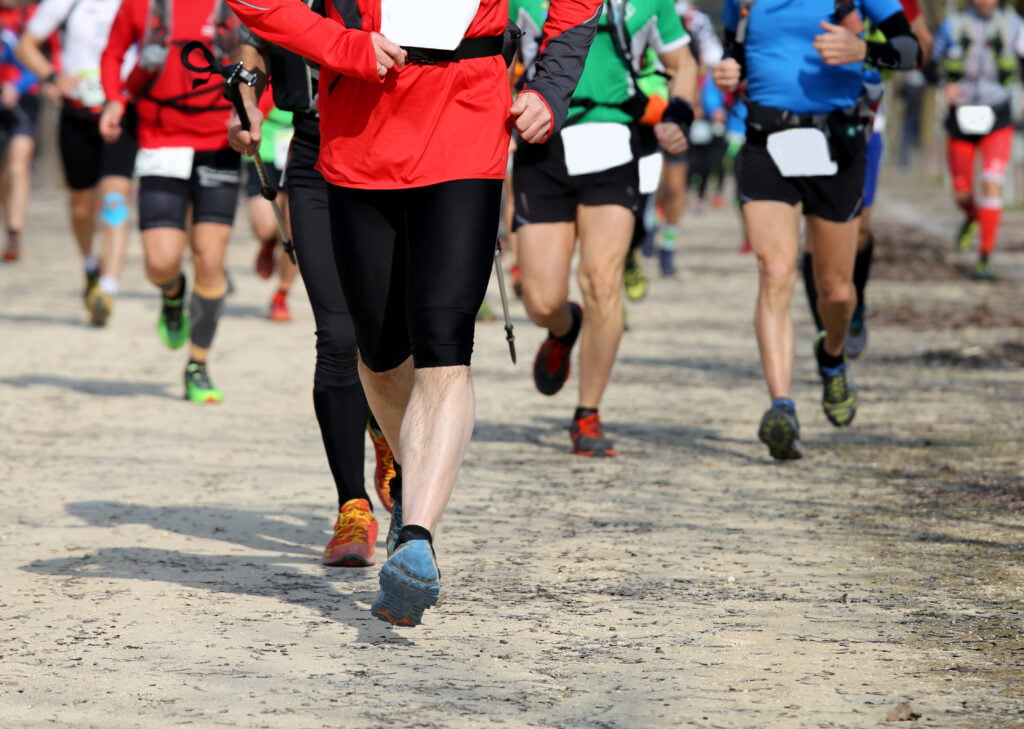Physiotherapy & Athletic therapy can be instrumental during marathon preparation. Our skilled team can develop a personalized training program to improve overall performance, providing specific strengthening exercises and stretches to help the body safely manage the excessive load, and enhance performance while reducing the risk of possible injuries and other problems.
This tailored training program will also include a thorough physical analysis of gait (how you walk), running style, body mechanics, foot pronation (low arch), etc. This helps to identify and subsequently improve any weak areas, potential stressors (body mechanics), posture, altered running style, poor flexibility, and joint-related problems. Individual lifestyle, fitness goals, occupation, home life (children and/or other dependents), and daily routine will also be taken into consideration when devising the training program.
A specific program targeting any weak points will help improve strength, endurance, and flexibility, leading to improved performance and a reduction in potential injuries. When our Physiotherapists and /or Athletic Therapist analyze your training regimen, your day-to-day work, personal and home life duties and more come into play. For example, some of those training for the marathon may be physically fit but suffering from postural issues resulting from their daily routine—sitting at a desk all day for example. This can in turn lead to issues during long-distance running such as a sore and stiff neck and shoulders, and sometimes even tingling in the arm.
We know how much your physical health reinforces your general well-being. We’re here to help!
Common Marathon Training Injuries
Patellofemoral Syndrome (PFS) “ Runner’s Knee”
This is typically an overuse injury. However, individual running style, poor control of foot pronation, or glute weakness not properly stabilizing the pelvis can all be factors
that contribute. Runner’s knee generally hurts just below the knee cap and/or behind the knee cap (patella). The knee cap needs to glide through its typical grooves in the femur (thigh bone) during the bending and straightening of the knee. Irregularities in patellar tracking (maltracking) lead to pressure on the underside of the knee cap and rubbing against the thigh bone. This causes muscle spasms and swelling. In severe cases, the knee cap can dislocate or subluxate as well. This is very serious.
Shin Splints
It is a general term to describe pain felt in the shins or lower legs—it is frequently caused by overuse. Shin pain is usually the result of overuse or overloading and may also be caused by poor muscle flexibility or excessive foot pronation.
Stress Fractures
Long-distance running exerts a lot of repeated force on our bones and can in some cases, lead to stress fractures. These are small cracks which can occur in the weight-bearing bones of the body such as the tibia, fibula, femur, metatarsals or navicular bones. Stress fractures can be extremely painful—pain is usually felt at the site of the fracture but may also affect nearby soft tissue, causing swelling and inflammation.
Achilles Tendinitis
This is an overuse injury of the Achilles tendon—a band of tendon tissue which connects the calf muscles at the back of the lower leg to the heel bone. It is a common complaint amongst athletes whose training involves running or jumping and is especially common during marathon training. Achilles tendonitis is usually caused by overuse, tight calf muscles, and foot pronation. Inadequate footwear may also contribute to the problem.
Plantar Fasciitis
Inflammation of the plantar fascia—a band of tissue which connects the heel bone to the toes and supports the arch of the foot—usually occurs as a result of overuse and is one of the most common causes of heel pain. It is often associated with flat feet or overpronation. It is aggravated by weight-bearing especially in unsupportive footwear. Specific strengthening and stretching exercises provided by a Physiotherapist or Athletic Therapist can be very helpful.
Muscle Strains
Strains are small tears or “microtears” in the muscles, and are very common. This occurs when the muscle fibres are overworked and overloaded and can be exacerbated by a poor warm-up or lack of stretching. A physiotherapy program can help condition affected muscles.
Ankle Sprains
The impact of running on pavement or uneven terrain for long distances can have a negative effect on the weight-bearing joints—the ankles, knees, and hips. Ankle pain can be due to several things including muscle overload, unsupportive footwear, tight calf muscles, weak glutes, over-pronation and so on. Sprains and other issues can be avoided by practising correct running form as well as regular strengthening and stretching exercises. Sprains can be quite painful, especially with weight bearing. You are likely to improve much quicker with the help of a professional.
Call 204-813-FIT4 or Book Online at www.fit4lifephysio.com.
“Take care of your body and it will take care of you!”—F4L

